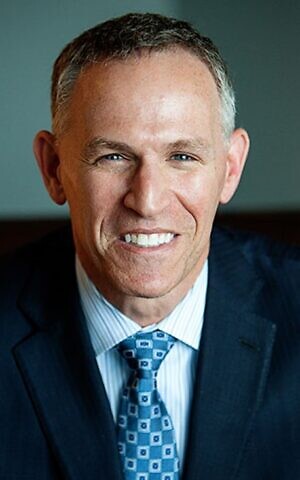COVID-19: Employee and Employer Rights
Attorneys tell the AJT that employers have the right to mandate that employees be vaccinated — with exceptions.
Dave Schechter is a veteran journalist whose career includes writing and producing reports from Israel and elsewhere in the Middle East.
When COVID-19 vaccines became available in January, Jewish HomeLife gave its approximately 625 employees until June 1 to be fully vaccinated.
When only 60 percent were vaccinated at the beginning of May, the deadline was put off “until we had a chance to educate, to alleviate fears, help everyone get on board with it,” said Shari Bayer, chief marketing and communications officer for JHL, which operates senior residences and provides home health services.
In mid-August, with 91 percent of its staff vaccinated, Jewish HomeLife reset the deadline for Oct. 4. JHL lost employees who chose not to be vaccinated and candidates for important nursing positions withdrew when informed of the requirement, Bayer said.
Having suffered outbreaks of COVID-19 in 2020 at the Berman Commons assisted living residence and The William Breman Jewish Home, a skilled care facility, JHL was determined to get ahead of the curve in mandating vaccinations, she said. The policy covers staff and also nursing students, independent caregivers, and volunteers. Meanwhile, President Joe Biden has announced that his administration will make staff vaccinations a condition for nursing homes that receive federal Medicare and Medicaid funding.

Federal agencies have given legal and regulatory support to such mandates. For example, the “General Duty Clause” in the Occupational Safety and Health Act of 1970 requires employers to provide an environment “free from recognized hazards that are causing or are likely to cause death or serious physical harm.”
Attorney Clifford Weiss, who specializes in employment law, told the AJT, “COVID-19 risks meet the definition of a direct threat to the health and safety of employees in the workplace, and because it’s a direct threat, employers are allowed to establish tougher and weighted safety measures in the workplace.”
That allowance comes with exceptions based on religious practice and medical/disability issues, and an obligation to seek a “reasonable accommodation” for workers. Attorney Ken Winkler, another specialist in the field, said, “It seems pretty clear across industries that employers have a right to mandate vaccinations, provided that they recognize the two exemptions.”
Attorneys contacted for this story said:
- Yes, employers may require that employees be vaccinated.
- Yes, employers may ask employees if they have been vaccinated.
- Yes, employers may ask to see proof of vaccination.
- No, the emergency use status of vaccines is not a shield against vaccination. (Note: On Aug. 23, the Food and Drug Administration gave full approval to the Pfizer/BioNTech vaccine. As of this writing, the Moderna and Johnson & Johnson vaccines remain under emergency use authorization.)
- No, employees cannot cite HIPAA (Health Insurance Portability and Accountability Act) as a reason not to answer.

“So many people have this misconception that HIPAA has this privacy law and employers can’t ask about my medical conditions. This is absolutely false,” Weiss said, explaining that HIPAA applies to the transmission of confidential medical information between, for example, a doctor’s office and an insurance company.
A Justice Department memo issued July 6 said that while the Federal Food, Drug, and Cosmetic Act requires that employees be given an “option to accept or refuse administration” of a vaccine, it “does not prohibit public or private entities from imposing vaccination requirements for a vaccine that is subject to an emergency use authorization.”
In Georgia, Gov. Brian Kemp’s May 25 executive order bars state agencies, service providers, and state properties from requiring proof of vaccination, so-called “vaccine passports,” or establishing work rules that differentiate between the vaccinated and unvaccinated.
Legal scholars point to Jacobson v. Massachusetts, a 1905 case in which the U.S. Supreme Court upheld the authority of the Cambridge Board of Health to require vaccination during a smallpox epidemic.
During the 2009 H1N1 (“swine flu”) outbreak, the Occupational Safety and Health Administration (OSHA) issued an opinion letter that backed the ability of employers to mandate influenza vaccinations.

In June of this year, a federal judge in Houston dismissed a lawsuit filed by employees of Houston Methodist Hospital, who were suspended for failing to comply with a requirement that they be vaccinated against COVID-19. “The public’s interest in having a hospital capable of caring for patients during a pandemic far outweighs protecting the vaccination preferences of 116 employees,” District Judge Lynn Hughes wrote. “The plaintiffs are not just jeopardizing their own health; they are jeopardizing the health of doctors, nurses, support staff, patients and their families.”
On May 27, the Equal Employment Opportunity Commission, which enforces workplace anti-discrimination laws, issued guidance that “federal EEO laws do not prevent an employer from requiring all employees physically entering the workplace to be vaccinated for COVID-19.”
The EEOC said that employers must provide “reasonable accommodation” for employees who are exempt from immunization under the Americans with Disabilities Act, Title VII of the Civil Rights Act, and other federal laws. Accommodations could include requiring the wearing of face masks, social distancing, regular COVID-19 testing, or reassignment.
During COVID-19, working from home has been an accommodation, but that is not possible in many jobs. Employment attorneys told the AJT that if an accommodation is not possible, and there is no other way for an employee to perform a job’s essential functions, the loss of that job remains possible.
The EEOC also said that an accommodation may be sought based on “sincerely held religious beliefs, observances, or practices if an accommodation will not impose an undue hardship on the conduct of the business.”
Compared with other religions, Jewish Americans were the most likely to be “vaccine accepters,” according to a survey published June 21 by the Public Religion Research Institute (PRRI), a nonprofit that conducts polls on religion-related issues. Weighted for their 2.4 percent of the population, the Jewish sample numbered 142 out of more than 5,850 respondents.
The 85 percent of Jewish Americans were “vaccine accepters” in June, and the same proportion was found in a March survey. Only 28 percent reported “at least moderate concerns about COVID-19 vaccines.”
PRRI reported that 71 percent of Jews — and 56 percent of its total survey — supported requiring proof of vaccination to participate in such activities as travel, work, or school. Fewer than half (46 percent) supported religiously-based refusals, while just 29 percent agreed that unvaccinated children should be able to attend public schools on religious grounds.

“Ethically, I not only think mandates are acceptable, I would be inclined to argue that they are obligatory,” said Edward Queen, director of the Ethics and Servant Leadership Program and coordinator of Undergraduate Studies at Emory University’s Center for Ethics. “Given the magnitude and consequences of the pandemic, the health of the public and society takes precedence over an individual’s desire, particularly when the consequences to the individual are minimal and those for the society are immense.
“From a Jewish perspective, kol Yisrael arevim zeh bazeh (‘All Jews are responsible for each other’). This requirement is not only to avoid placing others in danger, but also to act in a positive manner to protect them. This fact has been recognized by the leadership throughout Judaism’s denominational spectrum, including a leading posek of the religious Zionist movement, who ruled that those refusing to be vaccinated ‘must not be allowed into synagogues, to participate in a minyan, or be called to the Torah.’ You cannot get a more explicit mandate than that,” Queen said.
Rabbi Michael Broyde, an expert on Jewish law and a professor at the Emory University School of Law, said, “Halacha [Jewish law] does make saving a human life a huge priority and thus halacha supports the mandating of vaccination in all situations in which it is medically needed.”
Jewish law also “requires obeying the laws in the land in which we live,” Broyde said. However, he also noted a distinction: “If the government said, ‘All people must be vaccinated,’ then Jewish law would say, ‘all people should obey that law,’” but “If the government said, ‘private employers may require vaccinations as a condition of employment,’ Jewish law does not say, ‘and thus all employees must be vaccinated’ as that is not a law.”
- Business & Professionals
- Community
- Dave Schechter
- Jewish HomeLife
- President Joe Biden
- Berman Commons
- Gov. Brian Kemp
- Shari Bayer
- Clifford Weiss
- Ken Winkler
- Edward Queen
- Rabbi Michael Broyde
- COVID-19
- Vaccines
- employers
- employees
- mandate
- The William Breman Jewish Home
- Medicare
- Medicaid
- Occupational Safety and Health Act
- Food and Drug Administration
- Pfizer/BioNTech
- Moderna
- Johnson & Johnson
- emergency use authorization
- Health Insurance Portability and Accountability Act
- privacy law
- Jacobson v. Massachusetts
- Occupational Safety and Health Administration
- Influenza
- Houston Methodist Hospital
- Equal Employment Opportunity Commission
- Americans with Disabilities Act
- Title VII
- Civil Rights Act
- accommodation
- Public Religion Research Institute
- Jewish Americans
- Ethics and Servant Leadership Program
- Emory University
- Center for Ethics
- Halacha
- Jewish law
- Federal Food Drug and Cosmetic Act




comments